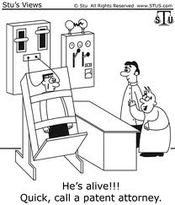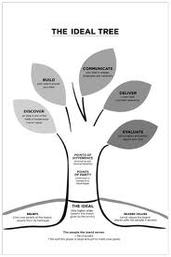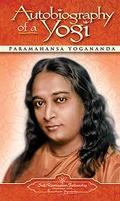|
I'm pretty mixed on patents. I understand that if a company invests huge resources into discovering something, it is unfair for someone else to simply piggyback and copy it (but I think companies should make money from execution and service, not ideas). I understand there is societal benefit to sharing inventions (but I think the current system doesn't accomplish that since it's impossible to keep up with the multitude of patents granted and in-progress). I believe that many of the lawsuits around software patents are frivolous (and many of the duplicating/overlapping patents shouldn't have been granted in the first place), so the whole situation is a mess. Too many people still pay attention to "patent portfolios" (with quantity often more important than quality), and that attitude causes difficulties for entrepreneurs wondering if they should spend their time and money collecting [often useless] patents simply to show off. Also, the recent law change that gives priority for patentability to those who file first instead of those who invent first requires filing patents immediately upon thinking of an idea, which is costly and sort of ridiculous/impossible for everyday people or entrepreneurs to do (and incentivizes patent trolls). I heard an interesting session last week at UCLA Anderson by an accomplished patent attorney, Todd Miller. It was generally on tips for entrepreneurs (and less on controversial issues like should there be patents or how the system should be reformed). Below are my main notes and takeaways. What do you guys think about the issues I've raised above? Tip 1: Work backwards.
0 Comments
This quarter, I'm lucky to be taking a class taught by Jim Stengel, the former Global Marketing Officer of P&G (the "UCLA CMO Experience"). I wrote about this class in my admissions essay, and I'm excited about finally experiencing it.
Below are my main takeaways from this week's readings and lecture.
In Steve Jobs' bio, it said he read Autobiography of a Yogi by Paramhansa Yogananda every year. So I figured there must be something to it. (I had also heard of the book several times from other yogis and figured I would give it a try.)
The book was slow to start (and sometimes included way too much detail), and I had trouble getting used to the writing style for a while. I also didn't really understand the overall point or trajectory of the work. Then, part of the way through, I began to enjoy it, and I noticed more and more pearls of wisdom on the pages. The book is about religion, but it's also not about religion. It's about faith and spirituality and the common one-ness uniting everyone, and I like those ideas. (The book is not about doing yoga sports exercises. It's about meditation and mind control, some of the most difficult and rewarding activities a human can apparently engage in.) The book featured many accounts of supernatural episodes (visions, reincarnations, levitation, and teleportation); those didn't sit well with me, but I will tolerate it as there's enough good elements in the book ignoring the supernatural events. After reading the book, I'm wondering what parts of it appealed most to Jobs. Meditation? Spirituality? Below are my notes. I apologize for butchering the spellings of many of the people and places mentioned in the book; I was listening to the audio version (which again unfortunately but understandably featured a reader with an English accent). Ch. 1: My parents and early life
Ch. 19: My master
Ch. 21: We visit Kashmir
Ch. 42: Last days with my guru Ch. 43: Resurrection of Sri Yukteswar
Ch. 46: The woman who never eats
|
Archives
June 2024
Categories
All
Subscribe |



 RSS Feed
RSS Feed
